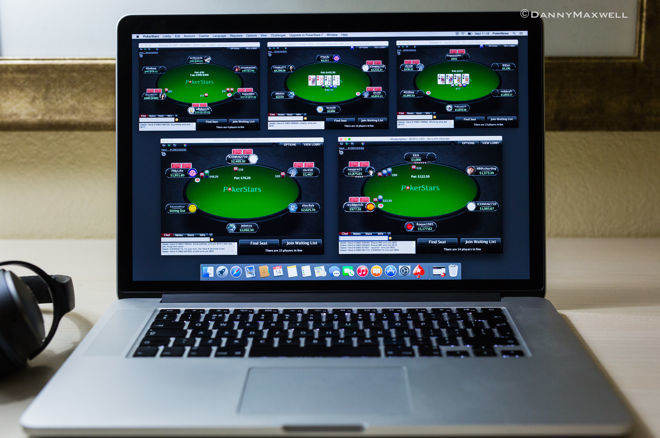Online Poker Rules-Internet Texas Holdem

Poker is a skill game .
Introduction to Internet Poker
Planet Poker first introduced real money action to the Internet in 1999. Since then, Internet poker has grown to degrees few could imagine. On any given night, you can find thousands of poker players from all over the world playing poker for real money on the Internet.
The dimension of the Internet is bringing the game to thousands of poker players who never had access to the poker game before. Many beginning poker players are able to play online poker for play money or at micro limits that are not offered in live casinos. Of course, many poker players do not live in areas that have a live casino, so the Internet now gives them a way to find a poker game.
Many of these new poker players born on the Internet are finding their way to the live casino. The tremendous growth of live tournaments around the world is an excellent example. Many of the players going to these tournaments are honing their skills on the Internet. For example, the 2003 World Series of Poker main event featured over 30 entrants who won their $10K entry at Internet poker sites. The winner, Chris Moneymaker, had never played a live tournament before and was able to outplay over 800 of the best players in the world to take home the $2.5 million top prize at the World Series of Poker!
USE BONUS CODE: POKERAIR1
Online Poker vs. Live Play
Many poker players now prefer online poker play compared to live poker play. Some of the benefits to playing poker online include:
- No commute
- No tipping
- Quicker action/More hands per hour
- Deposit bonuses and other promotions
- 24-hour action
- Tremendous selection of games
- No second-hand smoke
- Ability to play multiple tables at the same time
Most of the strategies described in this article could be used successfully whether you play live poker or you play poker on the Internet; however subtle strategy differences between the Internet Poker and live games are important to understand. These strategy differences arise from several characteristics unique to the Internet:
- Short playing sessions: Players move in and out of games a lot more than they do in a live poker game, so you are rarely playing the same opponents for a very long time.
- A virtual environment: Poker Players tend to be more deceptive and tricky on the Internet where there is no face-to-face interaction, and betting or raising is just a mouse click away.
- Internet distractions: Opponents are not as observant playing on the Internet as they are in live games since they sometimes play two tables, read e-mail, watch television, talk on the phone, and many other things that might distract them from the game.
Let’s discuss these unique characteristics in a little more detail and the impact they may have on your strategy.
A Virtual Environment
On the Internet, you are dealing with names, not faces. You cannot stare your opponents in the eyes to see what they tell you. This psychological part of poker makes for a different type of poker game on the Internet versus live games. For example, although I don’t advise it, there seems to be more bluffing and tricky play on the Internet compared to live games. I suspect this to be the case because players don’t have to “show” their face when making terrible plays or terrible bluffs. They can simply will away at home in front of their computer screens. In live play, many players find it difficult to make crazy bluffs when they have to look their opponents in the eye.
Another reason why players may tend to bluff more online than in a casino is the ease in which you can bluff. Online you just have to click your mouse. In a live game, you have to physically move your chips into the center of the table. I believe that some players on the Internet forget that they are dealing with “real” money and may tend to get careless at times by simply hitting the bet or raise button for that slim chance at a win.
Of course, these are generalizations, but players tend to be more deceptive and tricky on the Internet than in a live game. This impacts strategies in two ways. First, you can’t assume your opponents are bluffing all the time, but you will need to call and raise a little more often against those opponents who are trying to win every pot. On the other hand, you should probably bluff a little less often than in a live game since your opponents will tend to call you a little more. They also realize that player’s online bluff a lot, so they will tend to call more even with weak hands. They will also find it easier to just click the mouse to call compared to physically moving their chips in a live poker game.
Internet Poker – Concepts Review
Several characteristics unique to online poker games versus live games require that you make small adjustments to strategy:
- Short playing sessions: Poker Players move in and out of games a lot more than they do in a live game, so you are rarely playing the same opponents for a very long time.
- A virtual environment: Players tend to be more deceptive and tricky on the Internet where there is no face-to-face interaction, and betting and raising is just a mouse click away.
- Internet distractions: Opponents are not as observant playing on the Internet as they are in live games.
Table image is not as important online as in a live poker game since players are easily distracted and move in and out of games a lot; there fore, generally play a more straightforward tight game online than you would in a live game.

One of the unique features of the Internet is the tremendous selection of different sites and games.
There are many criteria to evaluate when choosing a site: financial security, site security, software, games, limits, traffic, tournaments, type of players/games, customer support, promotions, and rake.
There are three main criteria in choosing a game:
- Percentage of poker players playing the flop
- Average size of the pot
- Knowledge of opponents
Internet tells all relate to the speed at which an opponent bets:
- A delay followed by a check often indicates weakness.
- A delay followed by a bet often indicates strength.
- An instantaneous bet/raise on the turn or river usually indicates strength.
- An instantaneous check usually indicates weakness.
- A quick check usually indicates weakness, but beware if the player check-raises.
High-limit games are generally tight and aggressive. Strategies for these types of games include:
- Raising preflop from good position to gain control over the hand
- Raising preflop with high cards and medium pairs to drive out opponents
- Folding middle suited connectors and small pairs most of the time
- Using semi-bluffs as a main arsenal of your play on the flop and turn
Low-limit games are generally loose and passive. Strategies include:
- Raising preflop with premium hands that stand up well against multiple opponents
- Raising less often with borderline hands when you are first in preflop
- Playing suited connectors and pairs more often, especially from late position
- Playing a straight forward game with few bluffs and semi-bluffs
In general, the better players have larger stacks and the weaker players have smaller stacks for several reasons:
- The better players generally win, so they tend to have a large bankroll.
- The weaker players generally lose, so it is natural that their bankrolls are often small.
- Many weak players who play small limits will sometimes jump up a limit to try their luck, and usually don’t have an adequate bankroll for the limit they are playing.
Avoid playing with a stack so small that you cannot get full value out of a big hand.
Playing multiple tables is a great advantage for good players who are able to increase their overall hourly earn rate; however, there are also several disadvantages:
- You can sometimes make mistakes by hitting the wrong button.
- It is more difficult to evaluate your opponents.
- You will experience greater variances by playing two tables at the same time.
There are three types of record keeping that I find helpful:
- Earnings results: At a minimum, you should record your gain/loss and time played for each poker session.
- Player analysis: Since you will be playing hundreds and even thou sands of different opponents, it is to your advantage to record notes on your opponents and their various playing styles.
- Hand analysis: Recording the results of various hands and the strategies you employed can help you better evaluate your individual play.
Deposit bonuses are a great way for low-limit players to build a bankroll so that they can move to higher limits more quickly.
Tournament strategy requires that you make adjustments to your regular ring game.
Collusion and cheating occurs on the Internet; however, it also occurs in live games. In a casino, you have to overcome the rake, parking, gas, meals, and most importantly tips, to make your session profitable. On the Internet, you have to overcome the rake and some collusion that might be taking place.
A major concern in playing online is the reputation and financial stability of the site,
Playing poker on the Internet for a living has some great benefits:
- You can work your own hours.
- You are your own boss,
- You can take as much vacation as you like.
- You can work wherever you want in the world.
- You can work in your underwear, lol.
Downsides to playing professionally include:
- The fun and thrill of playing poker is not quite the same as when you play part-time.
- There are no paid vacations.
- American citizens must pay full FICA and Medicare.
- You must pay for medical and dental insurance.
- Gambling income is taxable in the United States just like regular income, even if you play part-time.
- You will have an unstable income each month, with the risk of actually losing money during a month.
Poker is a fun game, but it is even more fun when you win.